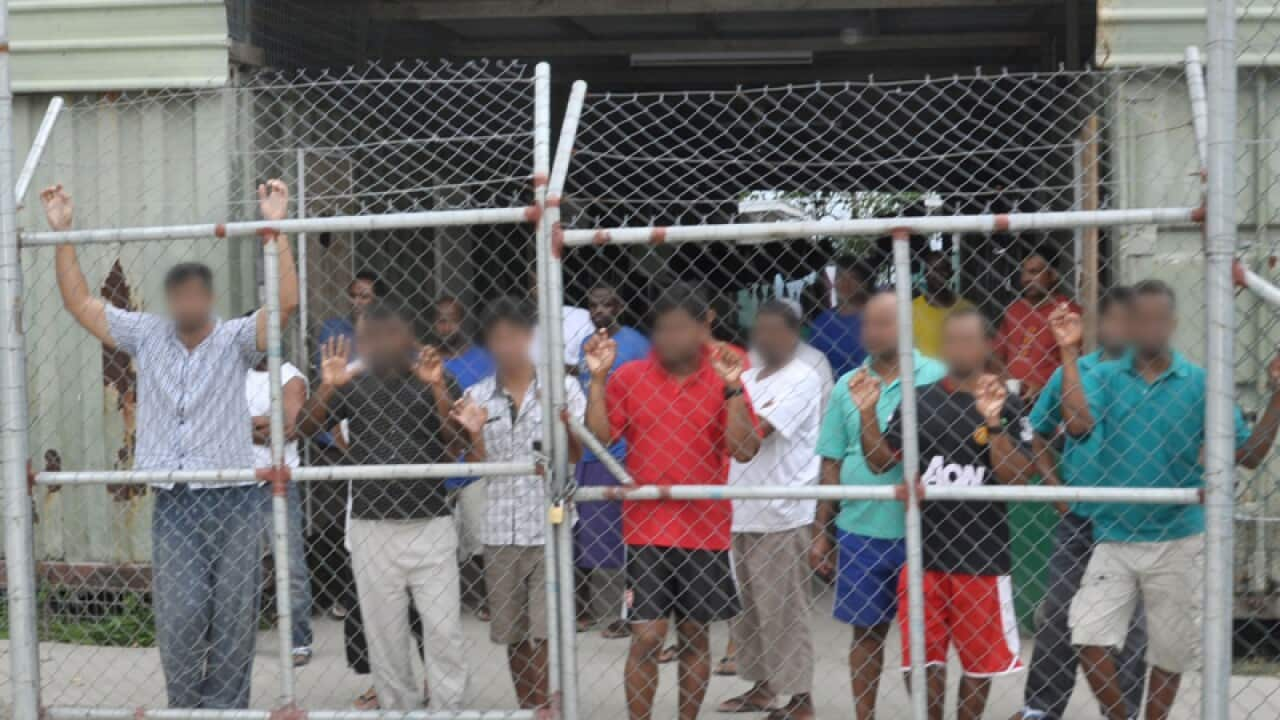Angry shareholders have demanded Transfield Services pull out of running the Nauru and Manus Island detention centres, accusing the company of having blood on its hands.
The storm of protest came during a fiery annual general meeting, but Transfield's executives say they are confident of winning the right to control the centres for another five years.
"We accept that our services are delivered in a politically charged environment. Politics, however, is not our business," chairman Diane Smith-Gander told the meeting.
"We are not responsible for these policies and we will not step away from providing essential services to people in need."
Ms Smith-Gander's speech to shareholders was repeatedly interrupted by activist shareholders, urging the company to end the offshore detention contracts. These activists were escorted out of the venue by security.
Outside the venue, nearly 150 protesters gathered in a noisy demonstration, saying the company had "blood on its hands" and calling for the centres to be closed.
The demonstrators also accused Transfield of breaching international law while running the two offshore detention centres.
Transfield has rejected the claims, saying it is bound by Australian law and the laws of the jurisdictions in which it works.
It has said it has zero tolerance for abuse.
Its shareholders also approved changing the company's name to Broadspectrum.
Transfield took over from security group G4S on Manus Island in February 2014 and has been in charge of the Nauru detention centre since 2013.
Transfield said its contract for services at the Nauru and Manus Island detention centres has been temporarily extended for a further four months and it remains the federal government's preferred bidder to operate the centres for another five years.
"The final negotiations are ongoing but we are confident we will land in a position that both parties are happy with," chief executive Graeme Hunt said on the sidelines of the shareholder meeting.
The extension would involve a broader scope of activities, including welfare work for families on Nauru and for rehabilitation of asylum seekers into the community, he said.
Transfield has nearly $25 billion worth of work on its books for 2016, with more than half its business coming from government clients, Mr Hunt said.
The company does not disclose the financial details of the detention contract but the centres are estimated to contribute up to one-fifth of the Transfield's total revenue.
Several shareholders called on Transfield to review the damage to its reputation done by operating the centres and urged the company to diversify into other sectors.
The contribution from the defence, social and property segment - which includes the detention centres contract - will diminish over time as the mining and energy sectors recover, Mr Hunt said.

